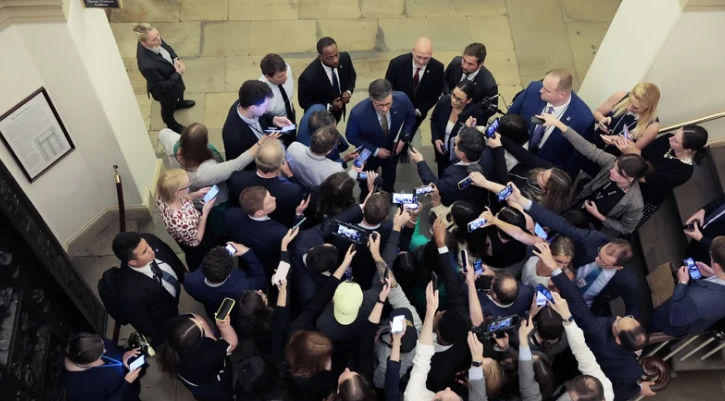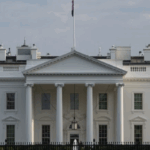The Republican-controlled House of Representatives has narrowly passed a sweeping tax and spending bill championed by President Donald Trump, overcoming deep internal party divisions and unified Democratic opposition.
Dubbed the “One Big, Beautiful Bill Act,” the legislation marks a major step toward enshrining Trump’s second-term domestic agenda into law. It passed in a razor-thin 215–214 vote late Wednesday following a tense overnight debate and last-minute negotiations with both conservative and moderate factions within the Republican Party.
The bill proposes a decade-long extension of Trump’s 2017 tax cuts while slashing federal spending across multiple sectors, including major cuts to public health programs and social welfare. The White House says the legislation will usher in a “new Golden Age” by shrinking the federal government and encouraging economic growth.
“Legislation of this magnitude is truly nation shaping and life changing,” said House Speaker Mike Johnson, celebrating the victory. “Future generations will look back at this day as a turning point in American history.”
Yet the bill faces fierce criticism from Democrats and independent analysts, who warn it will deepen inequality and balloon the national debt. The Congressional Budget Office (CBO) estimates the package could add up to $4 trillion to the deficit over ten years while pushing millions off public health insurance and reducing benefits for the lowest-income Americans.
House Minority Leader Hakeem Jeffries called the legislation “the largest cut to health care in American history,” accusing Republicans of stripping essential services to fund “the largest tax breaks for billionaires in American history.”
Despite internal pushback, Republican leaders managed to placate dissenters through targeted amendments. Conservative lawmakers had demanded deeper cuts to Medicaid, while moderates insisted on expanding the state and local tax (SALT) deduction. A compromise raised the SALT cap from $10,000 to $40,000, and the bill now includes an earlier implementation of Medicaid work requirements and a faster phase-out of clean energy tax credits.
President Trump personally lobbied Republicans in a rare visit to Capitol Hill this week, credited with helping unify the party. His intervention reportedly swayed several holdouts after initial efforts to pass the bill stalled.
Although the bill passed the House, it faces an uncertain future in the Senate, where Democrats hold enough influence to demand changes. Lawmakers expect a month of revisions, with Senate leaders aiming to deliver a final version to the president’s desk by Independence Day.
Financial markets reacted with caution. The yield on 10-year U.S. Treasury notes spiked to a multi-month high, reflecting investor concerns about the bill’s long-term fiscal impact.
If passed into law, the legislation would represent one of the most significant overhauls of U.S. tax and social policy in decades, with effects likely to ripple across every corner of American life.

















